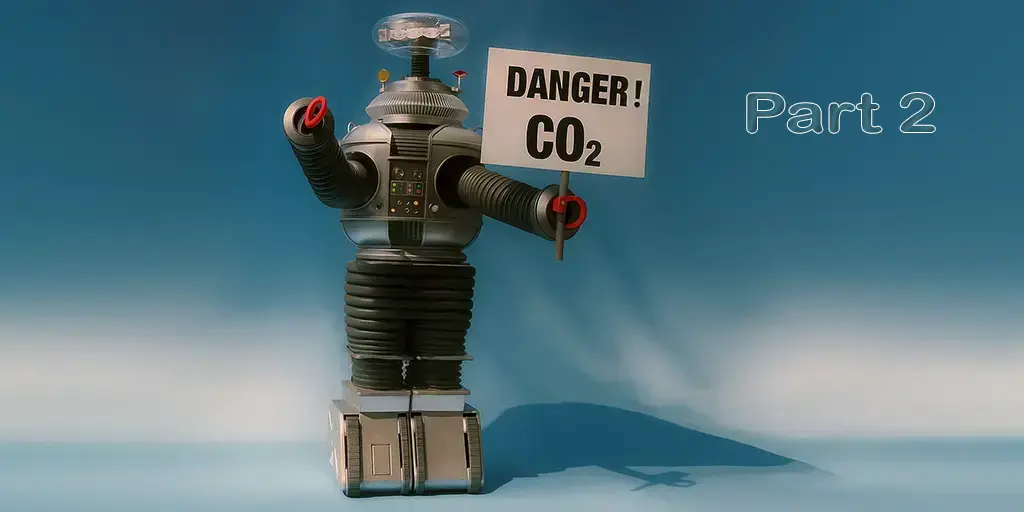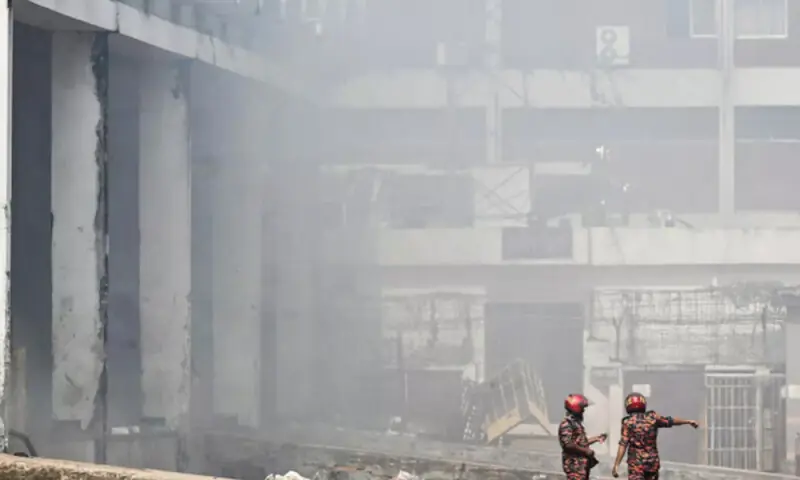Copyright Watts Up With That

Part 1 can be found here. Marlo Lewis, Ph.D., Senior Fellow in Energy and Environmental Policy, Competitive Enterprise Institute Part 2: Allegations and responses The Politico reporters claim the DOE report “cherry-picks mainstream research and omits context,” “relies on outdated studies,” “cites analyses that were not peer reviewed,” and “revives debunked arguments.” The reporters cite three examples of alleged cherry picking. First, as described by the reporters, the DOE authors claim that during the past 100 years, “the U.S. saw its most intense heat in the 1930s—and that maximum temperatures have never been that hot again.” The reporters do not dispute the veracity of that statement. However, they consider it cherry picking because average temperatures across the US and globally have been “clearly rising” since the 1950s. But the DOE authors do not hide or dispute that fact. Indeed, they quote the IPCC Sixth Assessment Report on that very point: AR6: It is virtually certain that hot extremes (including heatwaves) have become more frequent and more intense across most land regions since the 1950s, while cold extremes (including cold waves) have become less frequent and less severe (SPM, A3.1). The DOE report also quotes a relevant passage from the USGCRP’s Fourth National Climate Assessment: NCA4: Since the mid-1960s, there has been only a very slight increase in the warmest daily temperature of the year (amidst large interannual variability). Heat waves (6-day periods with a maximum temperature above the 90th percentile for 1961–1990) increased in frequency until the mid-1930s, became considerably less common through the mid-1960s, and increased in frequency again thereafter. As with warm daily temperatures, heat wave magnitude reached a maximum in the 1930s (NCA4, Vol. 1, p. 191). So, heat waves and maximum temperatures in recent decades are increasing, but both reached higher levels in the 1930s. Summarizing the entire instrumental record of US heat waves and daily maximum temperatures is not cherry picking. Nor is it cherry picking to point out which decade set the most US records for extreme heat events. The Politico reporters suggest the 1930s warming is climatologically irrelevant because “most scientists say it was a statistical outlier that skewed heat trends for decades afterward.” But assessing climate extremes means looking at outliers. It is ludicrous to chop past episodes of extreme heat out of the record and then depict today’s heatwaves as unprecedented. Whatever caused the heatwaves of the 1920s and 1930s, it obviously wasn’t postwar greenhouse gases. Another alleged cherry pick is the importance the DOE report places on the slow decadal warming rate in the US Corn Belt. The Politico reporters cry foul because “outside” of this “warming hole,” the nation is experiencing “increases in extreme summer heat.” But the DOE authors do not suggest the Corn Belt is typical of all regions or has more reliable temperature data than other regions. The Politico reporters claim the DOE report “omits context,” but that’s what they do here. The context is a discussion of how well climate models reproduce the warming of recent decades. The DOE report shows that, for a critically important climatic region in the US, 36 climate models used in AR6 hindcast significantly more warming than observed, with 30 models projecting two to eight times more warming than occurred during 1973-2022. The DOE report contains other examples of model failure. It is only common sense to doubt the validity of climate models that cannot “predict” what has already occurred. The third alleged cherry pick is the DOE authors’ selection “of which model simulations and which observations they show.” But as explained in Part 1, the DOE authors focus on model simulations of tropospheric temperatures because those data are out of sample and therefore suitable for scientific model testing. The DOE authors’ choice of simulations and observations is sound experimental design, not cherry picking. As for omitted context, the Politico reporters fault the DOE report for quoting one sentence in AR6 about hurricane intensity but not the next sentence. That omission is “clearly designed to mislead,” they contend. Not so. Here’s the AR6 sentence quoted by the DOE report: There is low confidence in most reported long-term (multi-decadal to centennial) trends in tropical cyclone frequency- or intensity-based metrics due to changes in the best track data. Here is the next AR6 sentence, which the DOE report allegedly hides: This should not be interpreted as implying that no physical (real) trends exist, but rather as indicating that either the quality or the temporal length of the data is not adequate to provide robust trend detection statements, particularly in the presence of multi-decadal variability. According to the Politico reporters, omitting the second sentence is misleading because it “specifically warns against making assumptions that no link exists between rising temperatures and stronger storms.” Two responses are in order. First, the quoted sentence does not imply there is no link between rising temperatures and stronger storms, and the omitted sentence’s caution that absence of evidence is not evidence of absence adds nothing to the substantive discussion of why trend detection is not “robust.” Such admonitory verbiage is gratuitous except perhaps as political cover to mollify the climate thought police. Second, the very next sentence of the DOE report quotes the following sentence from AR6: “It is likely that the global proportion of major (Category 3–5) tropical cyclone occurrence has increased over the last four decades …” Thus, the DOE report does not hide anything or mislead anyone. It quotes AR6’s conclusion that a hurricane strength-warming link is “likely.” The Politico reporters do not quote or mention that statement. Thus, it is the Politico reporters who omit context by quoting only one of two consecutive sentences. They commit the very journalistic malpractice they falsely ascribe to the DOE authors. The Politico reporters additionally fault the DOE report for not addressing evidence that hurricanes are becoming more destructive by “dropping more rain.” That is a “dead giveaway,” MIT hurricane scientist Kerry Emanuel told them. Allow me to offer another conjecture of equal plausibility. Short data records and substantial natural variability continue to impede robust detection of the “increasing destructiveness of tropical cyclones” two decades after Emanuel published his seminal paper on the topic. The recent emphasis on rainfall from slow-moving hurricanes is a “dead giveaway” some scientists need a new rationale for climate alarm. Litigation alleging procedural violations unrelated to the substance of the report resulted in DOE dissolving the five-person team of authors. Had the authors been allowed to finalize their draft report based on the numerous substantive comments DOE received, they would likely have addressed the hurricane-water issue more fully, as the Competitive Enterprise Institute’s comments advised them to do. The Politico reporters claim the DOE report “amplifies supposed conflicts among climate scientists—even when there isn’t any.” They continue: “For example, it is not true there is ‘substantial debate’ within climate science over whether the sun could be a primary driver of global warming.” However, the DOE report does not say the sun “could be a primary driver.” It more modestly states that the “impact of solar variations on the climate is uncertain and subject to substantial debate.” That is a reasonable conclusion from Connolly et al. (2021), a study cited in the DOE report. The Politico reporters describe the study as a “[Willie] Soon paper,” and claim the DOE authors cite it “to suggest it’s the sun, not the burning of fossil fuels, that has contributed to the global temperature rise.” That is sloppy reporting. The study’s lead author is Ronan Connolly, who is joined by Soon and 21 other co-authors. The study does not purport to assess the sun’s contribution to “global temperature rise” but its influence on “Northern Hemisphere temperature trends.” The study examines 16 different estimates in the peer-reviewed literature of changes in total solar irradiance (TSI) going back to at least 1850 and reconstructions of Northern Hemisphere temperature trends using five largely independent estimation methods. Connelly et al. conclude: “For all five Northern Hemisphere temperature series, different TSI estimates suggest everything from no role for the Sun in recent decades (implying that recent global warming is mostly human caused) to most of the recent global warming being due to changes in solar activity (that is, that recent global warming is mostly natural).” I challenge any fair-minded person to read the paper and conclude that a potentially significant solar contribution to Northern Hemisphere temperature trends has been “debunked” or that no “substantial debate” exists about the sun’s influence on those trends. In any case, the DOE report does not “suggest that it’s the sun, not the burning of fossil fuels, that has contributed to the global temperature rise.” Moreover, although the so-called Soon paper reports evidence that the sun has a large role in global warming, it also reports evidence that the sun has no role. The Politico reporters hide half of the study’s conclusion. Not fair or balanced! As for the DOE report citing analyses that “were not peer reviewed,” that is misleading. The DOE report presents analyses of temperatures and precipitation using official US government datasets and peer-reviewed methods. In many cases, the authors updated analyses of results published a few years ago to avoid any accusation of relying on outdated findings. Where they presented updates of previous analyses, they also referred to the underlying peer-reviewed papers and published the new data. Furthermore, the entire report went through anonymous peer review by DOE technical staff. The Politico reporters’ insinuation of research impropriety is baseless. The Politico reporters also raise the specter of “hidden connections” between certain DOE authors and “conservative groups that oppose government efforts to address climate change,” including groups that have received fossil fuel industry funding. Newsflash: The validity of a study does not depend on the researchers’ “connections.” Regardless, the affiliations of Ross McKitrick, Roy Spencer, and Steve Koonin with certain conservative think tanks are not hidden; they are open and avowed. The reporters acknowledge the authors’ “academic and government experience” but provide almost no specifics. They do not mention Koonin’s position as Under Secretary for Science in the Obama administration Department of Energy, John Christy’s work as a Lead Author of the 3rd IPCC Assessment Report (2001), Ross McKitrick’s work as an expert reviewer for the last three IPCC Assessment Reports (Working Groups I and II), Roy Spencer’s work as a NASA Senior Scientist for Climate Studies, or Judith Curry’s service on several top-tier advisory panels such as the National Research Council’s Space Studies Board and Climate Research Council. Why are those “connections” considered less relevant than an association with a conservative think tank? Finally, we come to the Politico reporters’ contention that the DOE report is “overtly political” rather than a bona fide “scientific exercise.” They ascribe that view to Massachusetts federal judge William Young. However, the judge does not use those phrases, and when they do quote him, they take his words out of context. Judge Young finds that the report’s final paragraph is “arranged” to provide “advice or recommendations for a renewed approach to climate policy.” The Politico reporters claim that means the DOE report is a “political plan.” But the judge is addressing an issue of administrative law, not of scientific integrity. His point is simply that the final paragraph’s “advice or recommendations” make the DOE authors an “advisory committee” and, thus, subject to the procedural requirements of the Federal Advisory Committee Act (FACA). More recently, Politico reporter Scott Waldman touts “the revelation” that four of the DOE authors have a history of challenging the Endangerment Finding. That means the report is “colored by” the authors’ “past views,” which, according to him, is “further proof” the report is “little more than a political document.” No, not even close. The Endangerment Finding expressly relies on “mainstream” climate science. So, it is a logical necessity for any scientist who finds serious flaws in such science to be critical of the Endangerment Finding as well. Only scientists who have produced substantial bodies of work critical of mainstream climate science could produce the wide-ranging literature reviews assembled in the DOE report. It is hardly news—much less a revelation—that four of the DOE authors had taken issue with the Endangerment Finding before they started working on the report. So, in Waldman’s view, contrarian scientists who have the courage to publish their research and speak candidly on the record are, by that very fact, unfit to produce a climate science report at the invitation of a cabinet secretary. That argument backfires. Every mainstream scientist the Politico team cites to trash the DOE report has spoken or written in support of mainstream climate science, the Endangerment Finding, or the ensuing GHG regulations, which means they too are “colored by past views.” Indeed, so is Waldman himself, who has made something of a career of bashing contrarian scientists and decrying climate policy rollbacks. By his logic, all scientists and journalists who have taken a position on the Endangerment Finding—whether for or against—are politically tainted and unfit to write or review climate science reports for the US government. Conclusion The Politico team denies the need for a critical review of mainstream climate science because, quoting IPCC coordinating author Camille Parmesan, the claim that dissenting views are silenced is “at best preposterous and arrogant and at worst a deliberate ruse to undermine decades of rigorous science.” Sorry, that does not pass the laugh test. Mainstream climate science is a multi-billion-dollar enterprise and almost wholly government-funded. Perceptions of a “climate crisis” are critical to the care and feeding of climate-focused agency budgets, climate-themed agency careers, and the self-transformation of environmental regulators into industrial policy czars. Consequently, agencies have a massive organizational interest in funding climate research that advances the crisis narrative. Similarly, because university climate research programs heavily depend on federal funding, faculty chairs preferentially hire and promote researchers who toe the party line. Those same researchers supply most of the editors and peer reviewers of academic journals, who decide which papers to publish and which to reject. As the late climate scientist Patrick Michaels observed, reviewers whose careers depend on federal largesse need no external direction or backroom coordination to reject a study suggesting that “climate change is a bit overblown” or that “we can’t do much about it anyway.” And let’s not forget the elephant in the room. Most of the nation’s climate research is conducted at prestige universities where political groupthink and viewpoint intolerance continually imperil freedom of speech and thought. In 2019, Nature Communications published a study that says the quiet part out loud. The study advises researchers with “scientific authority” not to try refuting skeptics, as that would leave “the counterproductive impression that there is something substantial in contrarian arguments to be debated.” The article links to a list of 386 contrarians, so that “professional journalists and editors” can know whom not to interview or publish. But such reflections are in a sense overkill. The Politico reporters are refuted by their own behavior. For what, pray tell, are they doing if not propagating the falsehood that the DOE authors have no arguments worth debating? And how is disqualifying a contrarian report because of its authors’ “past views” not an attempt to silence their voices in the public square?



